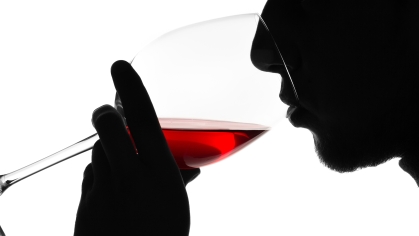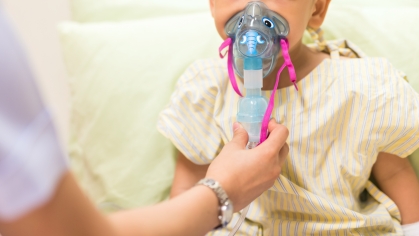A Rutgers New Jersey Poison Control Center official discusses how adults can reduce risks of poisoning for themselves, children and pets
Each year, about 35 million children in the United States trick-or-treat on Halloween night, 3,200 people go to the emergency department on Halloween for injuries and 46% of those are under the age of 18.
In the past, the New Jersey Poison Control Center at Rutgers New Jersey Medical School assisted in the medical care of Halloween-related cases ranging from a toddler who was admitted to the hospital with severe nausea, vomiting and difficulty breathing from ingesting cannabis edibles found in his babysitter’s coat pocket to a parent who suffered injuries from mishandling and incorrectly storing dry ice.
Bruce Ruck, the managing director of the New Jersey Poison Control Center, offers the following advice to avoid the risks of poisoning and allergic reactions:
Before allowing children to eat candy, inspect it for tampering. Signs of tampering may include opened wrappers, wrapping that doesn’t match the candy inside, labels with misspelled words or candy that looks or smells strange.
As of September 2024, the New Jersey Poison Control Center assisted in the medical treatment of more than 100 children ages 5 and younger who were accidentally exposed to cannabis edibles.
Watch for cannabis (marijuana) edibles masquerading as candy. Be aware of how similar these cannabis products can resemble store-bought candy – with similar names and packaging, but whose spellings or wrapper color might be slightly different. Edibles are commonly mistaken for candy by children and some adults, including people with dementia and other special health needs. Ecstasy pills or other drugs can look like colorful candy, too. These products may contain high concentrations of drugs, causing the potential for severe effects in adults and children. Treat edibles and other substances like medicine. Keep them out of sight and reach and locked away to prevent children from accidentally ingesting them.
As of September 2024, the New Jersey Poison Control Center assisted in the medical treatment of more than 100 children ages 5 and younger who were accidentally exposed to cannabis edibles.
Be alert to food allergies: About 4 million children in the U.S. are allergic to foods such as peanuts, wheat, milk, tree nuts or eggs. Many children may have severe reactions to these ingredients. If your child is allergic, monitor the candy and other treats they get while trick-or-treating.
Parents of children with food allergies can reference the Teal Pumpkin Project website to find out which homes are food-allergy friendly and giving out nonfood items.
Use caution with face paint and makeup: Face products may cause skin irritation. Parents should purchase items from reputable sources with a recognizable name brand or check the ingredients for known allergens. Use only non-toxic face products and apply them to a small area first. Some cosmetics and paints, especially those that are imported or found at bargain stores, have been found to contain lead. Anyone who uses face paint should wash their hands with soap and water before eating. Wash all paint and makeup products off before bed.
Parents of children with food allergies can reference the Teal Pumpkin Project website to find out which homes are food-allergy friendly and giving out nonfood items.
Don’t wear nonprescription costume contact lenses: These products could contain chlorine, iron and other dangerous chemicals and are not approved by the Food and Drug Administration, according to the American Academy of Ophthalmology. Only buy decorative contact lenses from retailers that require a prescription and sell FDA-approved products.
Be careful with alcohol: Many at-home Halloween parties serve alcoholic beverages. It is important to realize the alcohol content in beer, wine, liquor, cocktails and punches affects children and pets differently than adults. Even ingesting a small amount could lead to serious health complications or death for children.
A person who seems very drunk or has passed out may be showing early signs of alcohol poisoning and be in real danger. Immediate medical help is essential. “Sleeping it off” is never a safe option. Know the critical signs of alcohol poisoning.
Watch your pets: Chocolate, cocoa, candy and other products containing xylitol, an artificial sweetener, are poisonous to pets and can cause vomiting, diarrhea, seizures or even death. Cannabis edibles are another concern as these products contain high concentrations of THC (called delta-9-tetrahydrocannabinol), the psychoactive ingredient in cannabis.
If a child or adult has ingested a potentially dangerous product, call the New Jersey Poison Control Center at 800-222-1222 for immediate medical advice from doctors, nurses and pharmacists who are available 24 hours a day, seven days a week. Call a veterinarian or visit an animal hospital if a pet has ingested something dangerous.




